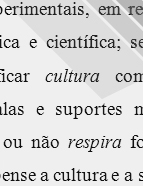

................................
His unique position in the historiography of contemporary culture in the second half of the 20th century arose from his sociological approaches to culture, including literature (following a period linked to economic and technical history), which he explores in Temas de Cultura Portuguesa [Themes of Portuguese Culture] (2 vols., 1960-65) and Temas Oitocentistas [19th Century Themes] (2 vols., 1959-62), where his methodological plan begins to be explored ("Para a história cultural do século XIX português" “Towards the Cultural History of 19th Century Portugal”) with the aim of antinomically studying "social groups," “precisely: routine and innovation – in the tools of daily work; in the logical support of thought; in the language that expresses it; in affective reactions and particular conflicts; in action and passiveness; in ideas, feelings, will, actions; in ideological currents (survivals of the past, needs of the present, aspirations for the future)” (I, p. 45). The guidance and collaboration in the aforementioned DHP, the “probing” of chosen themes, Cesário Verde (1955, 1957; 1964); Sampaio Bruno (1960); Antero and the ruin of his programme. 1871-1875 (1988, still echoing Gurvitch's reading of Proudhon), broadening the scope of the diachronic essay of concepts and key ideas, as indicated by critical relativism (Do sebastianismo ao socialismo [From Sebastianism to Socialism, 1983), and the history of ideas (From "Regeneration" to the Republic, 1990), accentuated in a historiography that did not lose the essayistic sense and the dialectical vein against assertive conclusions that tend to establish doctrine and, when not, to block criticism. Thus, the history of culture is an unstable terrain of migrations and shifts of analytical objects. José-Augusto França (b. 1922) comes from art and literature, such as praxis and critique in refined studies, to the comprehensive vision of culture encapsulated in Os Anos Vinte em Portugal [The Twenties in Portugal] (1992), beyond his own repository of lived writing ([Memórias para o século XXI [Memories for the 21st Century], 2000), a perspective where conceptual vehicles, ego-history, and the analytical lens of the historian intersect without colliding; in search of the sociocultural facts he had pursued since O Romantismo em Portugal [Romanticism in Portugal] (1973; 1993): his Zé Povinho (1975) withstands historiographically with the robust plasticity of Bordalo.
